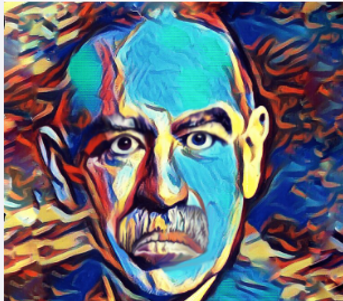
Adventures in the library
The history of the Phillips curve

Familiar stories about "Keynesians" believing they could "exploit the Phillips curve" to lower unemployment turn out to have no historical basis. Nothing like that is discoverable in the history of discussion of the Phillips curve, although quite a lot of more interesting things are. I wrote a book about the Phillips curve myth and various other bits and bobs about other aspects of the story.
European integration

My first appointment to the faculty in Oxford was in 1993, to teach the economics of European integration in a recently created Master's degree. I thought the integrationist project had gone off the rails with the Maastricht Treaty of 1992 (that's the one that contained the agreement on monetary union). Since most of the students were enthusiastic about it all, that made it an interesting job.
Apart from learning more than I would have about such things a the Common Agricultural Policy (a true eurodisgrace, by the way) so as to lecture on it, I wrote a little on the framing of arguments promoting integration from the point of view of an economist, and on the question of monetary union. When we thought there was going to be a referendum on British membership of the EMU, Christopher Huhne and I wrote a book debating the idea.
The case against voting reform

The advocates of proportional representation seem not to have grasped that the electoral system does not merely provide a means to reflect voter preferences, but also shapes party and voter incentives and affects the number of parties standing. It thereby shapes as well as reflects preferences. When the specific consequences of these things are recognised, the case for PR collapses. With our constitution threatened by a referendum agreed by the Coalition Government in 2010, I thought I had better write another book.
Central bank independence

The idea of central bank "independence" seized, and indeed fixated the minds of economists in the late 1980s. The arguments made in support of it were a shambles. I did my best to pick them apart in a collection of papers. The uncritical acceptance of the arguments by so many economists is itself an historical finding of some note. The whole episode was a great intellectual debacle, to the shame of the economics profession. Inflation having reemerged in 2021 and 2022 some doubts have been expressed about independence, and maybe I should return to the issue. Watch this space.
Milton Friedman

It is tough to say whether Friedman's admirers or his detractors have the more far-fetched ideas. He was a great economist, and no one should deny it. But that greatness comes from his work in the 1950s and 1960s, not the later work where I think he started wanting to be a media celebrity. That period is then all tied up with the propagation of the Phillips curve myth, and especially the supposed importance of his Presidential Address to the American Economic Association (another myth). I tried to highlight his brilliance, and set the record straight on some of the other things in a book, and wrote more about how some of his much poorer work came to be seen all important. There is a short version and here's the very short version.
Understanding bastard Keynesianism

So, the history of postwar economic theory has been badly represented. A lot of silly things are said about someone called "Keynes", but at least in some quarters his work does get serious scholarly attention. The trouble is that if it was Keynesians of any kind who were running policy, it was those Joan Robinson called "bastard Keynesians". Their thinking has been entirely trivialised by fictive accounts of the Phillips curve and such like. But they are the ones whose thinking shaped postwar policy and so it is the bastard Keynesians who are understudied. I have some ideas, but for now, there is just another space for you.